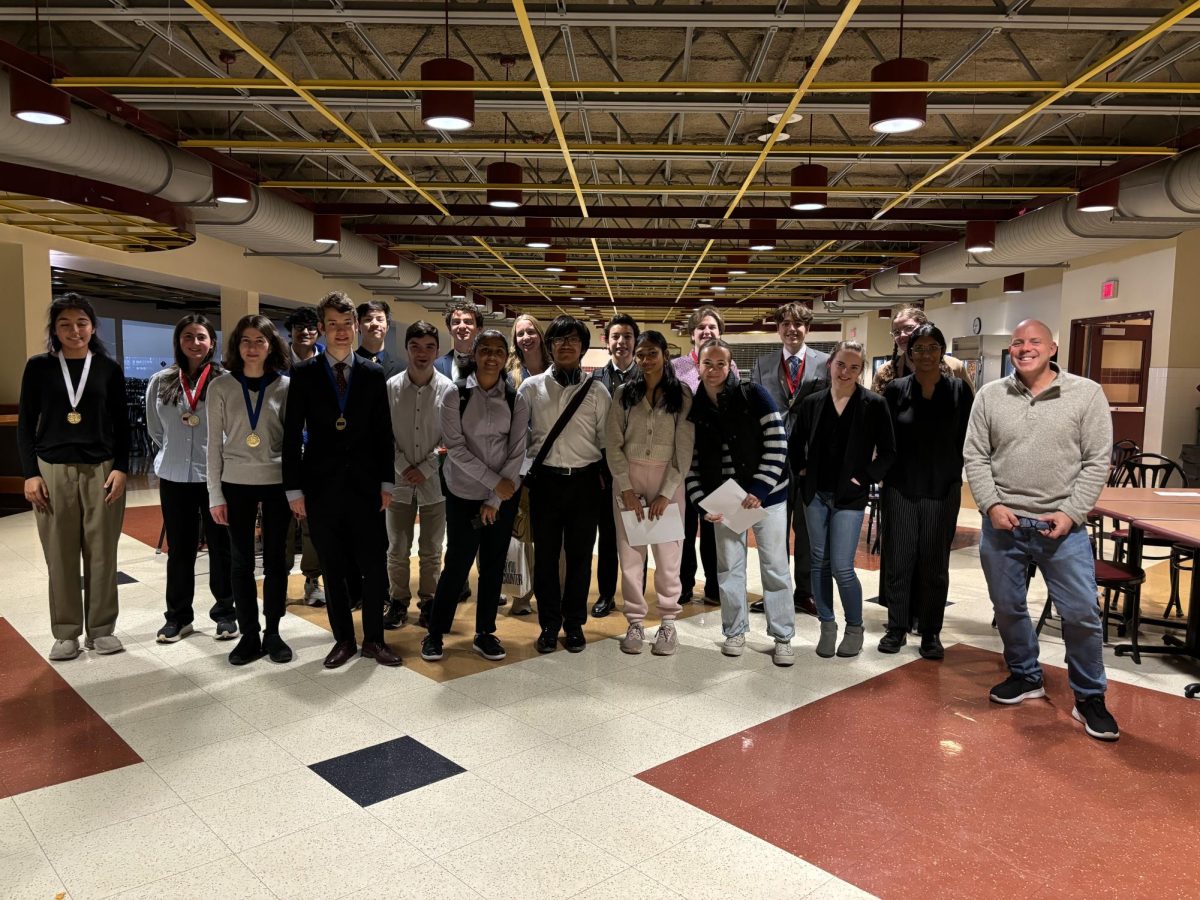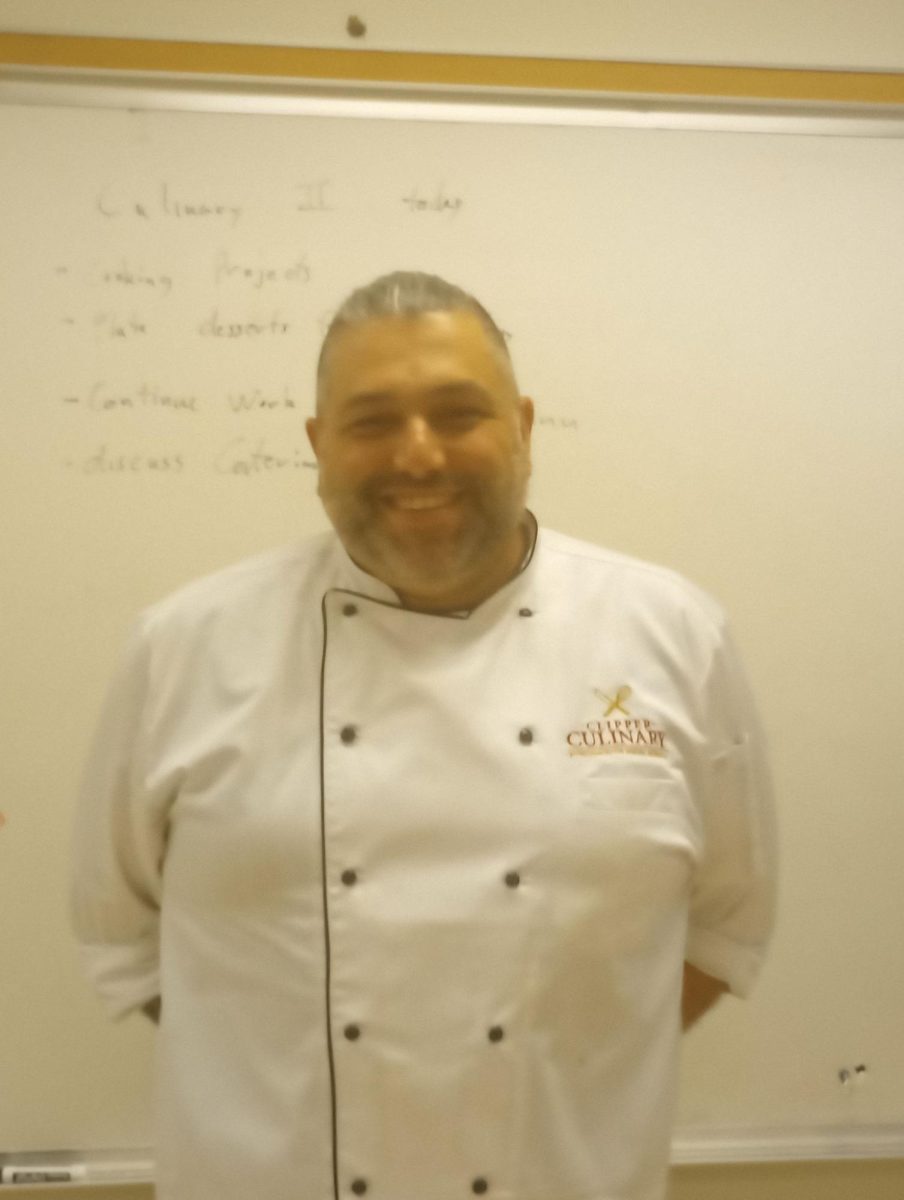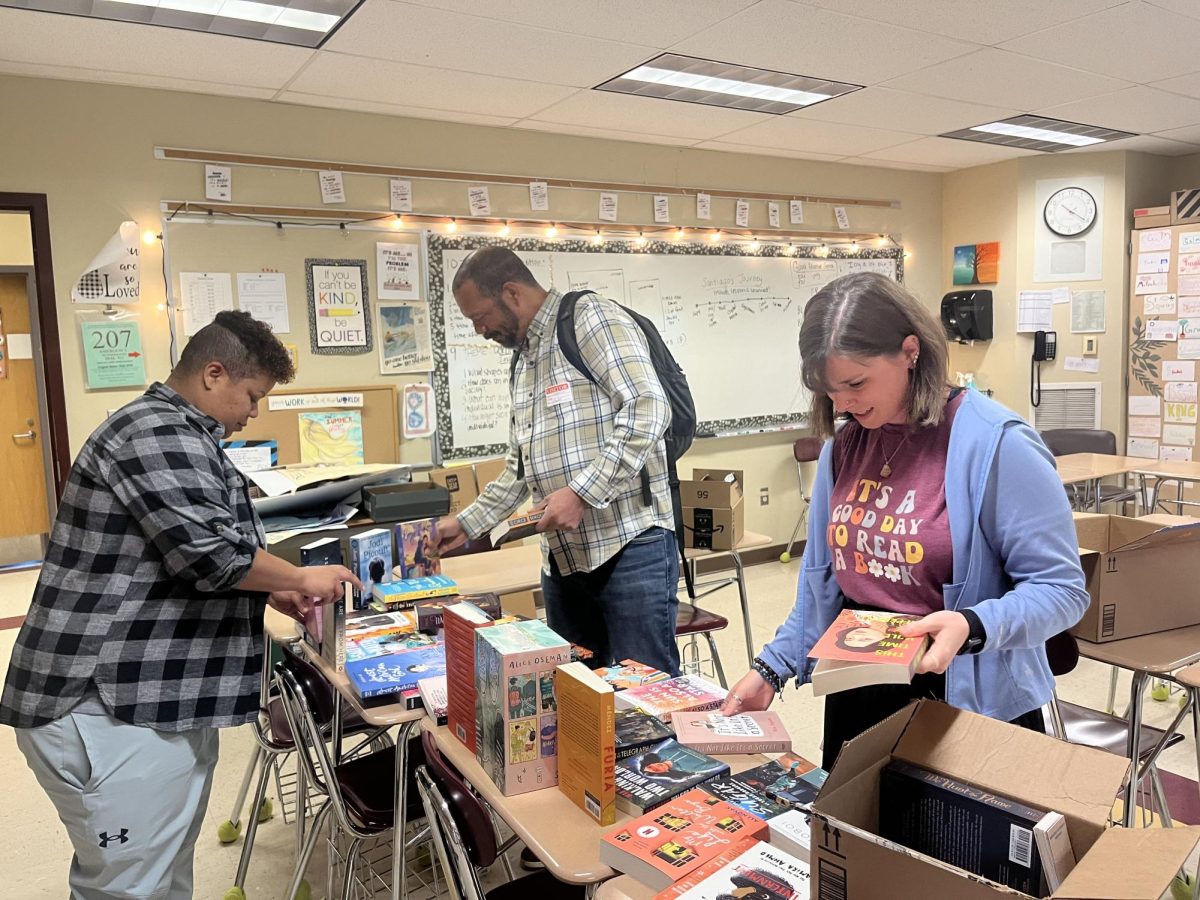Imagine walking through the school halls with everyone’s heads lifted. Visualize going into class and passing a note to your friend and watching them try to discreetly read it under the desk, while your teacher wrote on the chalkboard. Pretend you had to copy notes by hand and visit the library in hopes to find the information you are searching for. Those were the exact events that occurred at Portsmouth High School 31 years ago.
Technology has evolved over the years and this has infiltrated into classroom instructional time.
David Drukker, a PHS English teacher of 31 years, reminisces on the time of teaching prior to our current digital age. Although Drukker stated cheating was easier back then, he went on to say “Usually you can tell” when it’s not a student’s own work.
“Phones obviously are a huge distraction,” Drukker said. He used to walk into his room to students conversing with each other, and now their heads are buried in screens. Drukker also believes that handwritten notes are more efficient then ones that are typed out.
“I don’t know what the answer is,” Drukker said regarding the interference of technology. He feels confident in the fact that the overuse of technology won’t get better, and each year it gets worse.
Rick Hugener, a PHS science teacher for the past 22 years, feels technology is a helpful tool, but he fears he can’t compete with the distractions screens bring to the table.
“I could be doing backflips,” Hugener said in regards to students focused on their screens.
In his classroom, Hugener has students place their phones on a table. However that doesn’t always mean students are fully unplugged. Computers have become so versatile that yet again it can be impossible to hold a highschooler’s attention. “I started teaching in ‘02, and I had one computer in my classroom,” stated Hugener.
“Everything is at the push of a button,” Hugener added. He has made small changes to his curriculum, such as stopping a few assignments he feels that students will just copy and paste answers. He feels strongly that students are losing persistence when it comes to finding information, due to the fact that they expect answers to pop up right away when searching online.
“I think students give up on themselves way too early,” Hugener said compared to when his career first began and how much harder students would have to try and find answers.
Laura Lavallee, a PHS English teacher, has been teaching for 21 years. When she first started out, there were no cell phones. If the class needed computers, a spot would have to be reserved in the computer lab. She explained how students would cheat off of eachother, or even pay kids to write papers for them.
However, with AI on the rise, she fears that students are feeling more insecure about their ability to write quality pieces. “We have students feeling like their thoughts and feelings aren’t good enough,” she said.
Like Hugener, Lavallee confiscates phones. Students are expected to place phones in a shoe holder in order to be counted for attendance. Her philosophy with phones is; “out of sight, out of mind.” Although Lavallee has seen that cheating has become easier, she also believes that students can revise their work quicker, and access more helpful informative resources due to technology.
Lavallee’s modern day teaching philosophy is: “Embrace technology. Grow with it. We have to change what we are doing to some capacity, or else we will lose the students.”







